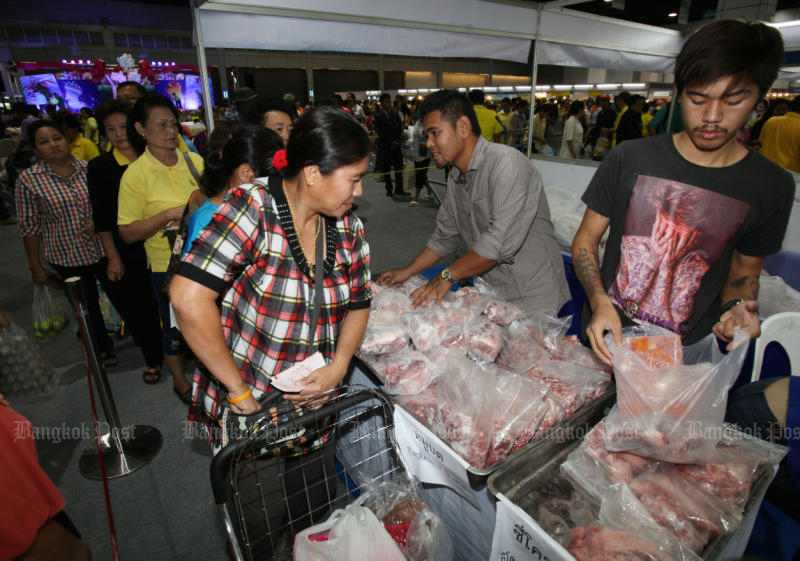
The government has moved to ally fears about the state of the economy, insisting the country is not in recession.
Government spokeswoman Narumon Pinyosinwat said some critics are relaying inaccurate descriptions of the state of the economy.
Certain civic groups have said the country has slid into recession, which is incorrect. A recession is when the country experiences negative growth in two successive quarters, which is not the case, the spokeswoman said.
Ms Narumon said that while growth might fall short of the GDP target, the economy is still expanding and does not present a cause for concern.
Economic growth is likely to come in lower than the Joint Standing Committee on Commerce, Industry and Banking (JSCCIB)'s forecast range of 2.9-3.3%. The joint committee is set to trim its forecast again at October's meeting, according to the Thai Bankers' Association.
Meanwhile, a majority of respondents say they are concerned about the high prices of consumer goods and high cost of living, according to a survey by Suan Dusit Rajabhat University, or Suan Dusit Poll. The poll was held on Sept 3-7 among 1,172 people to gauge their response to political, economic and social conditions.
Regarding economic conditions, 62.39% said they are concerned about high goods prices and the high cost of living and suggested the government control goods prices; 35% said they are in debt and their incomes do not meet expenses; 22.75% said the economy is in a recession and the government should take steps to build up investor confidence and introduce stimulus programmes; 16.15% said they are worried about unemployment and want the government to run job creation programmes; and 14.2% said prices of farm products are too low and quick actions are needed to solve the problem.
Also, the National Institute of Development Administration, or Nida Poll said most people do not believe the economy would improve by amending the constitution. The poll was carried out on Sept 5-6 among 1,260 people aged 18 and over.
Asked whether they believe the economy would improve if the constitution is amended, 54.28% said this is unlikely; 38.8% believed it would be helpful; and 6.9% were uncertain or had no comment.
Of the 54.28% who thought it was unlikely to be helpful, 32.1% said economic problems are not related to the constitution while 22.1% said whether the economy improves depends more on the government's performance.
Of the 38.8% who believed it would be helpful, 22.3% said if the constitution is amended the government would pay more attention to solving economic problems.